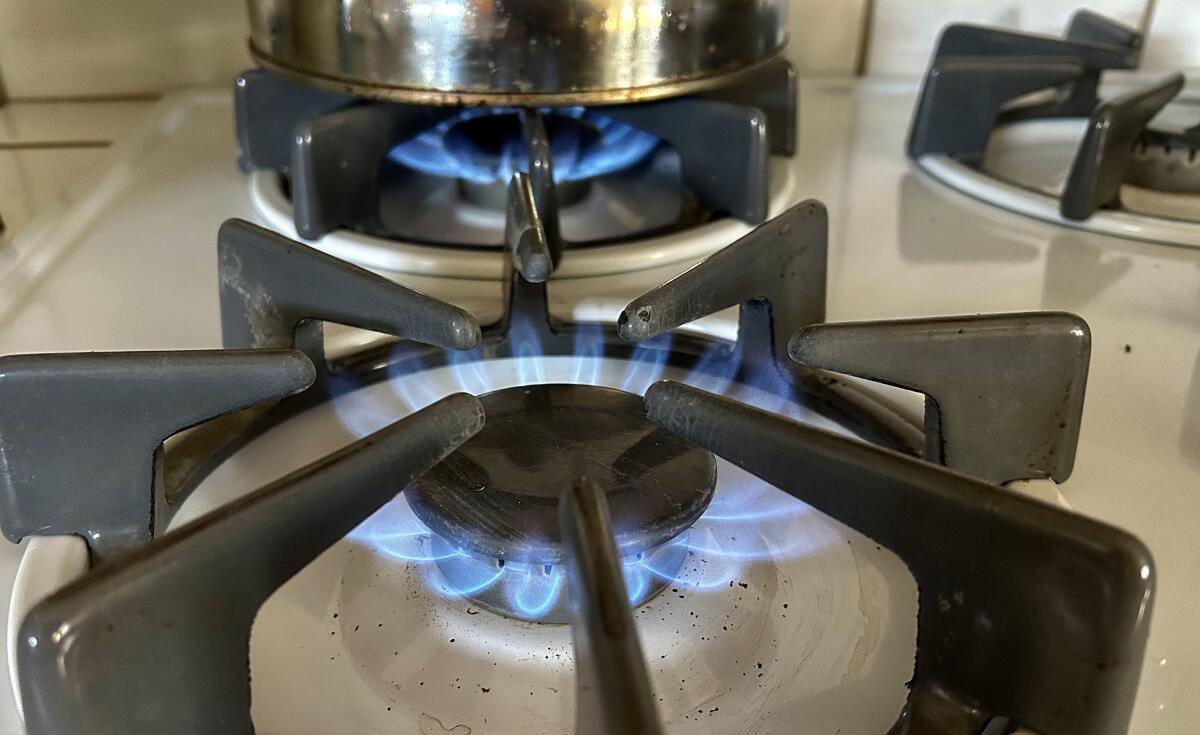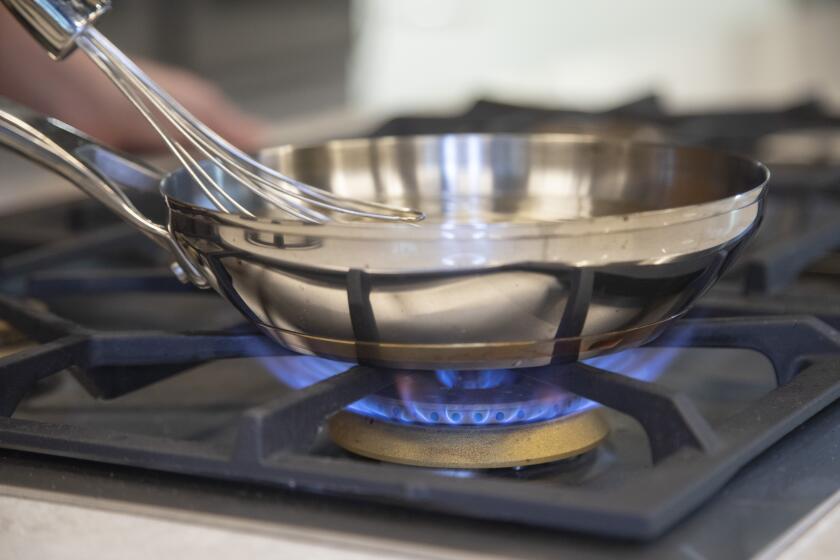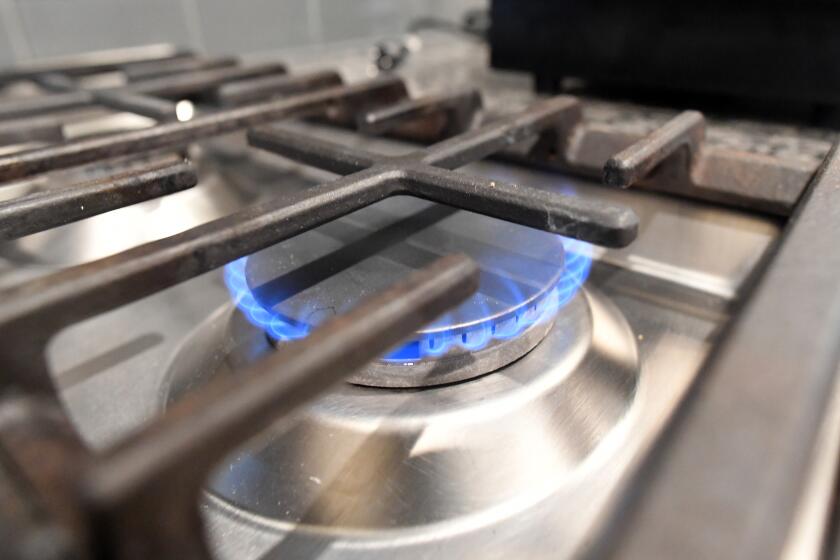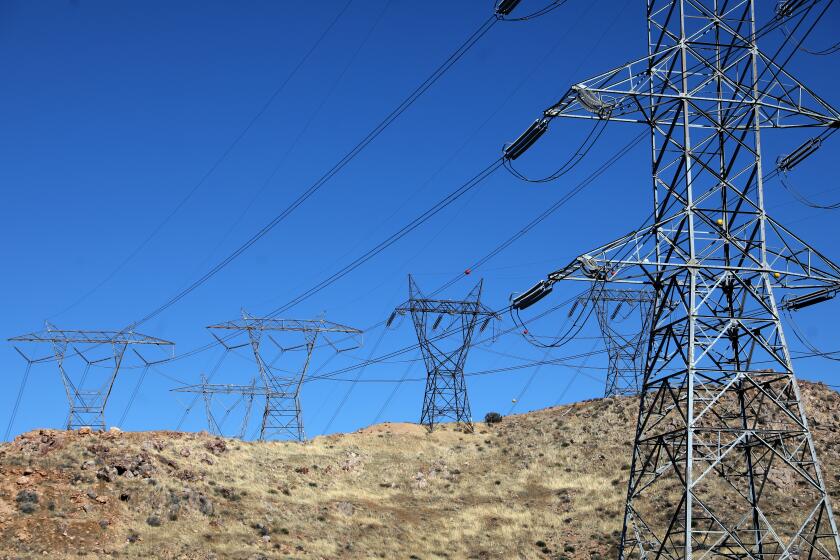Federal court slows a California ban on natural gas appliances

- Share via
A federal appeals court ruling Monday could hamper efforts by numerous cities and counties across California to ban natural gas appliances in new construction to fight climate change.
The ruling was in response to a case brought in 2019 by the California Restaurant Assn. against the city of Berkeley — the first city to prohibit the “installation of natural gas piping within newly constructed buildings.” The case had previously been dismissed by a district court in 2021.
On appeal, a three-judge panel in San Francisco ruled that the city could not preempt federal statutes in attempting to regulate the piping that carries natural gas into a building as a way to regulate the appliances themselves. The decision is not likely to be the final word on the matter.
The judges argued that the Energy Policy and Conservation Act of 1975 passed by Congress “expressly preempts State and local regulations concerning the energy use of many natural gas appliances, including those used in household and restaurant kitchens.”
Los Angeles has grappled with gas stoves, green hydrogen and a major methane leak. Here are some lessons for the nation.
All three randomly selected judges were Republican appointees — two from former President Trump and one from former President Reagan. The natural gas issue became nationally politicized this year as conservative politicians and media outlets portrayed the environmental measures as infringements on freedom.
“Instead of directly banning those appliances in new buildings,” the ruling states, “Berkeley took a more circuitous route to the same result and enacted a building code that prohibits natural gas piping into those buildings, rendering the gas appliances useless.”
Los Angeles is among more than 70 California cities and counties that have banned or discouraged natural gas hookups in new buildings. The City Council voted in May to do so, citing climate change.
Natural gas burned in homes and businesses accounts for about 10% of California’s planet-warming pollution. With the state targeting 100% clean electricity by 2045 — and L.A. aiming for 100% by 2035 — electric appliances would substantially reduce emissions over the long term.
Climate change spurred Friday’s unanimous vote by the Los Angeles City Council.
U.S. gas stoves are putting 2.6 million tons of methane into the air each year, even when they are not running, according to a team of California researchers who published a study last year in the journal Environmental Science & Technology. That’s equivalent to the annual amount of greenhouse gases from 500,000 cars or what the country puts into the air every 3½ hours.
That methane emission is on top of the 6.8 million tons of carbon dioxide that gas stoves emit when they are in use and the gas is burned, the study said.
Electrification can also slash indoor air pollution. Some researchers have found that children in homes with gas stoves face higher asthma risks, a finding that the gas industry disputes.
The impact of Monday’s ruling on laws across the state and country that banned natural gas appliances was unclear. “The panel reversed” the lower court’s decision, the ruling stated, “and remanded for further proceedings.”
The fixed charge will vary according to household income; specifics are still to be worked out. It applies to customers of SoCal Edison, SDG&E and PG&E.
In a statement, Jot Condie, the president and chief executive of the California Restaurant Assn., said the Berkeley law in question was “an overreaching measure beyond the scope of any city.”
“Natural gas appliances are crucial for restaurants to operate effectively and efficiently, as they allow for a wide variety of cuisines and innovations in the restaurant industry,” Condie said.
Representatives for Berkeley Mayor Jesse Arreguín did not immediately respond to requests for comment.
“It’s disappointing the Ninth Circuit held that Berkeley, like many other cities around the country, cannot take common-sense measures to protect its constituents from climate change,” Arreguín said in a statement.
Times staff writer Sammy Roth and the Associated Press contributed to this report.
More to Read
Sign up for Essential California
The most important California stories and recommendations in your inbox every morning.
You may occasionally receive promotional content from the Los Angeles Times.














